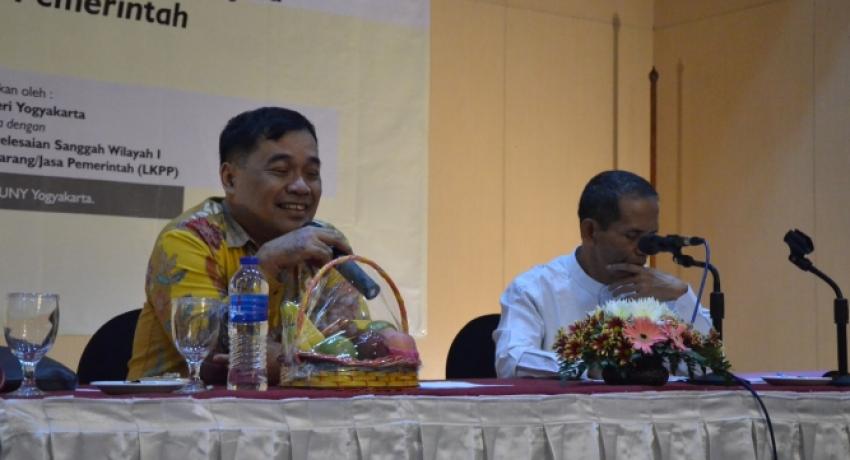There are seven contract dispute issues, namely defaults, contract amendments, black lists, advances and work performance payments, sanctions, compensation events and price adjustments. Therefore, legal protection is needed for the management of government procurement of goods and services. There are many problems with procurement at present including leakage, many corruption practices in the procurement process, lack of transparency in procurement of government goods / services and fear of procurement executive’s officials to process procurement. In addition, in the procurement of goods and services there is the potential for conflict. It is needed to have dispute resolution services. As stated by Setya Budi Arijanta, General Secretary of the Government Goods / Services Procurement Policy Institution in technical follow-up guidance and technical settlement and dispute resolution in the process of procurement of government goods and services at UNY, Friday (23/8).
According to Setya Budi Arijanta, the problem led to the establishment of the Government Goods and Services Procurement Dispute Settlement Institution (LPS PBJ) which aims to make the settlement of cases more effective, efficient, and accountable. Furthermore, its decision will give legal certainty. "The benefit is that PBJ dispute resolution is faster, more effective and efficient because BPS PBJ only handles disputes over procurement of government goods / services," he said.
According to him the procurement contract dispute settlement service is carried out in stages through a process of mediation, reconciliation and arbitration. The flow starts from the application, verification, evaluation and confirmation. Then the parties to the dispute are asked to choose a third party who will assist the resolution of the dispute, then the process of resolving the dispute and ending with the results of the dispute resolution.
This activity was attended by 110 people from various universities, city governments and partners from West Java, Central Java, DIY, Bali, East Kalimantan, North Kalimantan, Lampung, Maluku, West Nusa Tenggara and Papua. Opened by the Head of UPK UNY Sukirdjo who in his speech said that this technical guidance was a collaboration between UNY and the Directorate of Advocacy and Settlement of Regional Disclaimer I of the Government Goods / Services Procurement Policy Agency (LKPP). Sukirdjo hopes that with this technical guidance participants will be able to understand how to find solutions if there are disputes in terms of procurement of goods / services. (Dedy)





